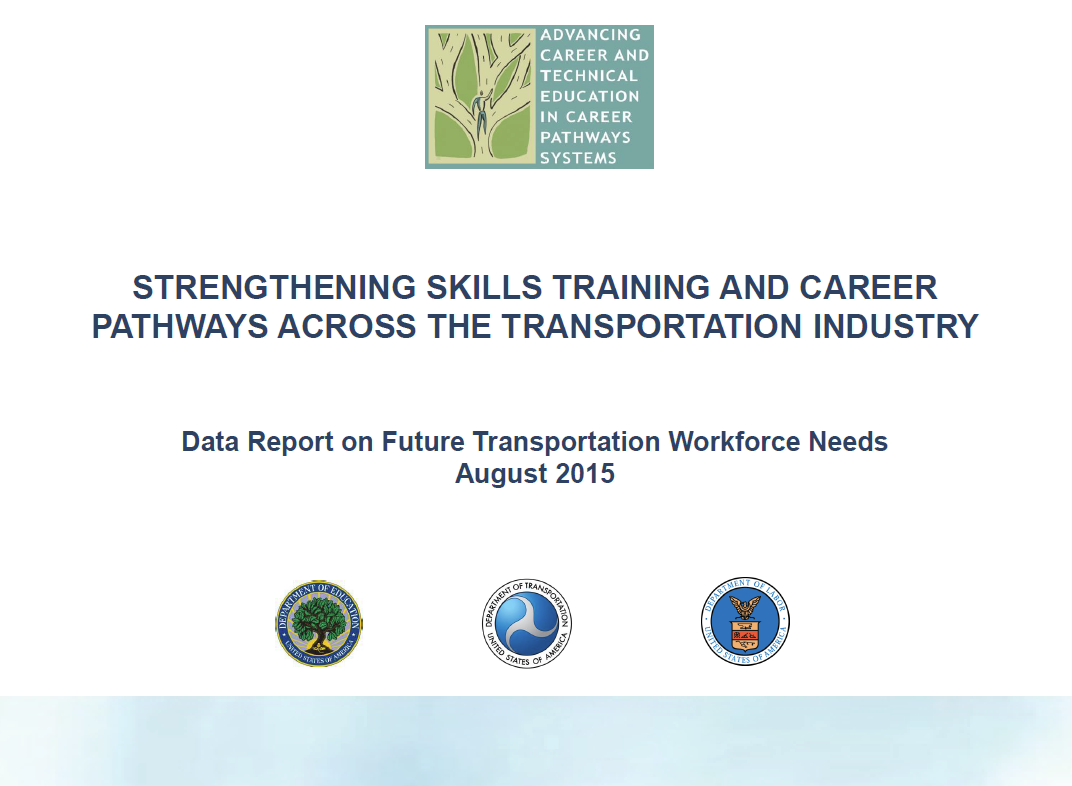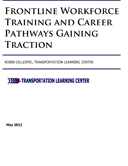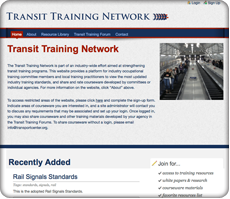Publications and Reports
As an advocate of the labor-management training partnership model, the Center supports its programs and mission through research and information ranging from broad overviews of public transportation, training and partnerships to technical white papers to research briefs and metrics reports on the benefits of labor-management training partnerships.
All publications are available for viewing or download as free PDF files, but the Center does not generally provide documents in hard copy. For more information on our publications, please email Julie Deibel, Program Manager,Instructional Design at jdeibel@transportcenter.org
White Papers
Providing Training for Zero Emission Buses
Category: White Papers | Posted: Mar, 2022 Read More »
Read the full report here.
Download
Mentoring Guidebook
Category: Case StudiesPartnershipsFact Sheets and Issue BriefsResearch and MetricsWhite Papers | Posted: Mar, 2015 Read More »
The purpose of this report is to serve as a guidebook, offering information that transit agencies can use to establish mentoring as a training method with guidance, suggestions, and examples to implement or expand upon existing mentoring programs. It is based on a generic mentoring guidebook developed by the USDOT, modified and enhanced to reflect transit maintenance applications.
Download
Strengthening Skills Training and Career Pathways Across the Transportation Industry
Category: Research and MetricsWhite Papers | Posted: Aug, 2015 Read More »

The collection and analysis of employment and skills data highlights the future growth areas and employment “hot spots” in transportation by industry subsectors, occupations, career areas, and geographic areas. It also emphasizes the need for skills training and Career Pathways across the transportation industry. The report identifies high-demand jobs with good wages, and analyzes the patterns in the education and work experience required for entry, as well as on-the-job training required for new entrants to gain full competency.
Pathways to Equity: Effective Transportation Career Partnerships
Category: White Papers | Posted: Jan, 2014 Read More »
Through the generous support of the Rockefeller Foundation, The Leadership Conference Education Fund awarded a seed grant to The Transportation Learning Center for the research, writing and production of this report. Expanding access to quality careers in transit systems and in transit capital construction has been the focus of innovative local programs around the country in recent years. This report presents case profiles of two of the most promising examples – one for youth Career Pathways into transit industry careers, and one for targeted construction hiring and training of disadvantaged workers for transit capital projects. This report focuses on two local case profiles for transit Career Pathways: a Project Labor Agreement in Los Angeles providing expanded access to jobs and training for public transportation capital construction, and a youth Career Pathways partnership in Philadelphia linking career and technical education with future transit careers. Both of these models, if taken to scale in the transit industry, can have positive impacts, locally and nationally, for improving access to family-sustaining careers and training and for improving educational outcomes for disadvantaged groups – urban low-income and minority groups as well as women – who have previously been under-represented in these occupations.
Download
Frontline Workforce Training and Career Pathways Gaining Traction
Category: White Papers | Posted: May, 2012 Read More »

The two most urgent workforce development priorities for the frontline workforce in transit (and transportation) are (1) developing a systematic approach to more and better training for the blue collar technical workforce and (2) creating broadly available career pathways linking education and industry for jobs that don’t require a 4-year college degree. Major national attention has focused on both priorities recently.
